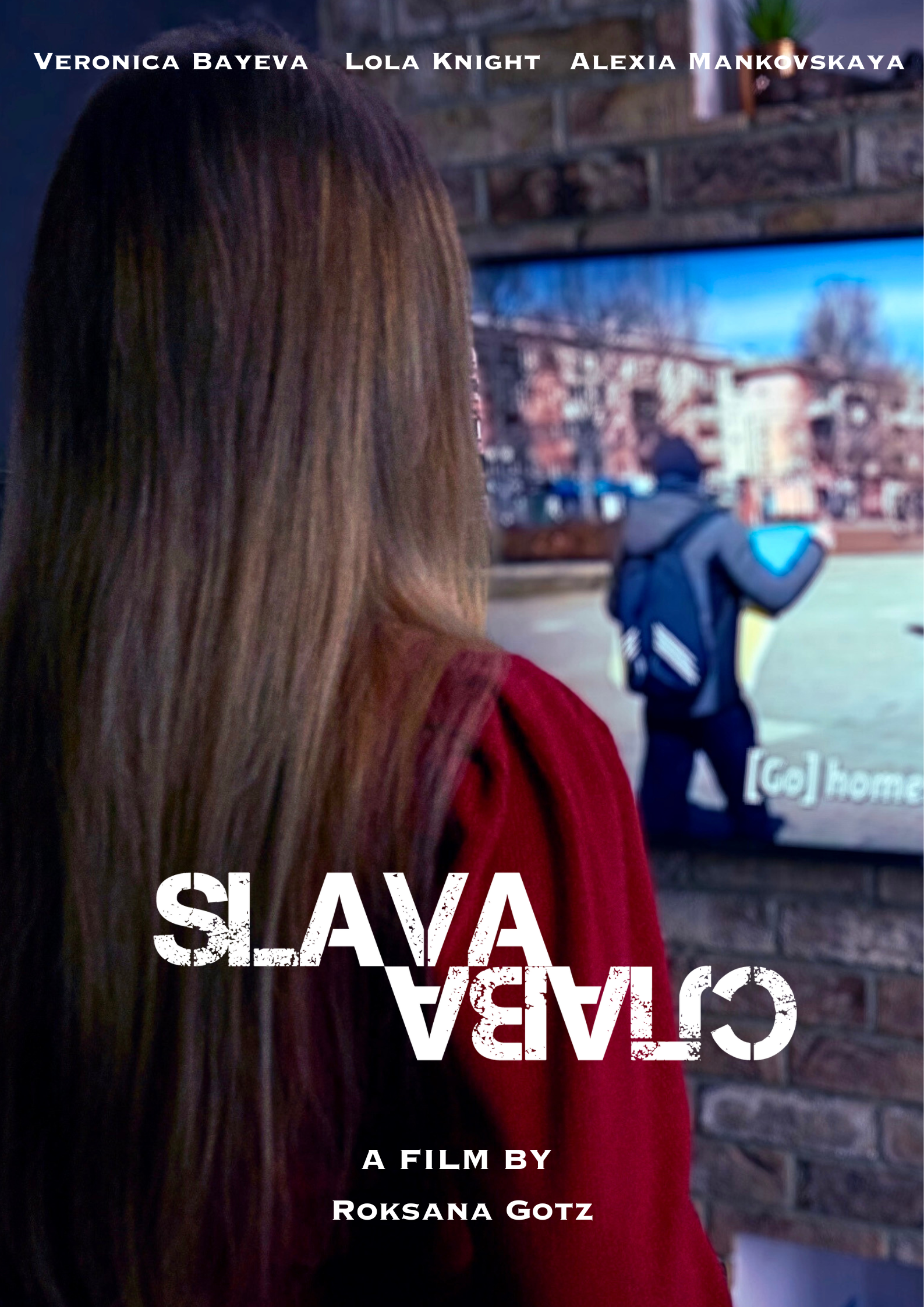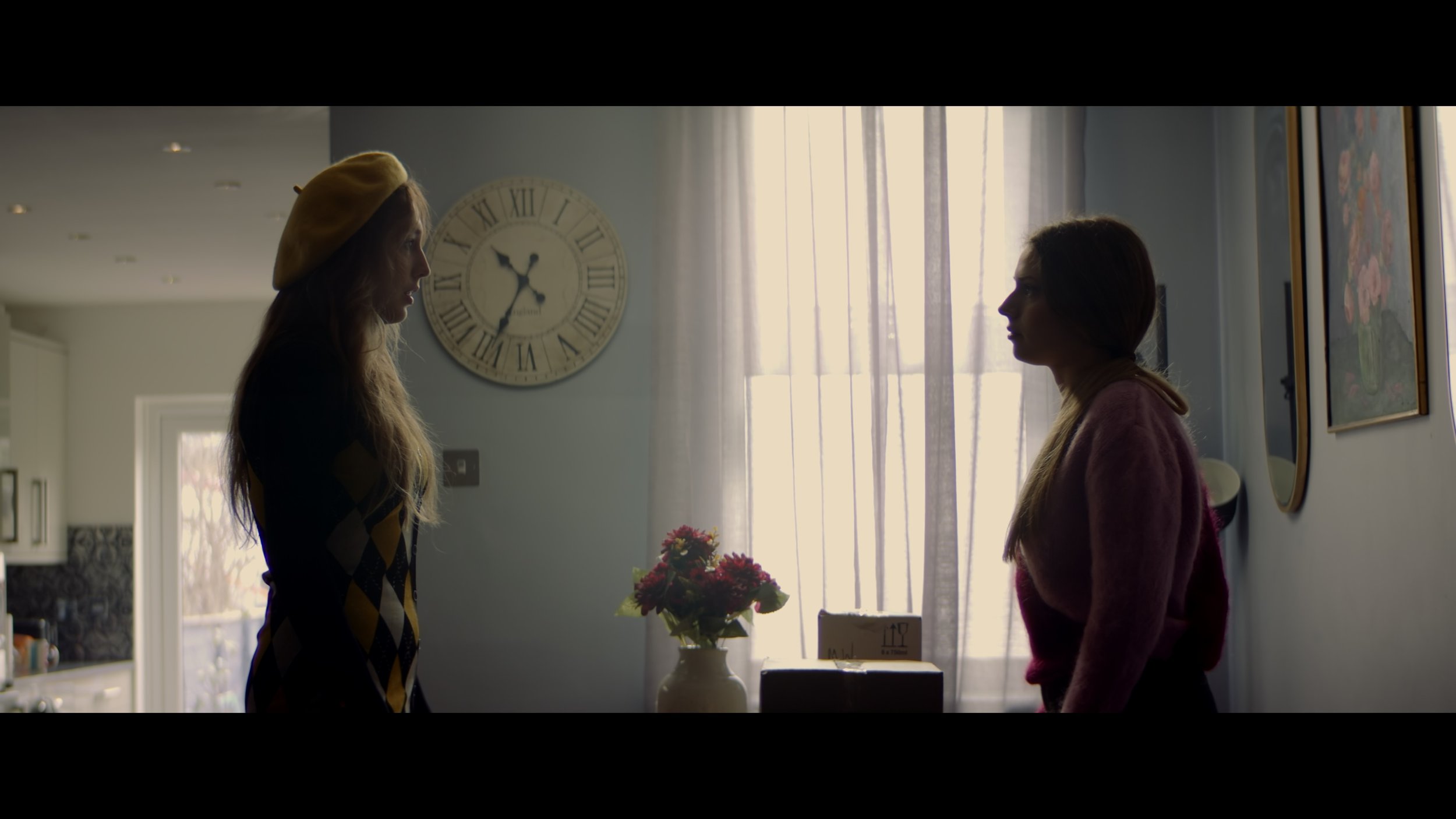Interview with upcoming director Roksana Gotz
Welcome Roksana, we are very excited to have you today with us to discuss about your work.
First off, Who is Roksana Gotz, and how did your passion for filmmaking begin?
I have a theater background. I was a theater kid, started as a performer, but became more and more passionate about telling my own stories. My first job as a director was for a stage play. But what I found lacking for me in theater was the intimate connection between a character and the audience, which film can provide. For the topics I love to explore in my writings I find that film is the better tool to tell the story.
Can you tell us about your previous work ?
I wrote my first screenplay in 2016. The short “Two way out” explored the reality of being a struggling artist, while deconstructing the concept of “sacrifices in the name of art”. It was a story of two friends, foreigners, who came to London, “the city of opportunities”, to pursue their dreams. Both young artists, both working in pubs while trying to “make it”, but different backgrounds and different perceptions of what success means. While they navigate through everyday struggles and their friendship, we are invited to ask ourselves is hope just a form of escapism? Does it give us motivation to continue or does it feed our illusions? In 2019, I directed a stage play I co-wrote,”The blue eyed girl and the Guest” which was produced in Sofia, Bulgaria. The play treats the topics of suicide, mental health and in a way, again, the concept of belonging.
CONVERSATION ABOUT: SLAVA
Can you share the inspiration behind the story of ‘‘Slava’’ and what motivated you to explore the concept of homeland and belonging? How did the events of February 24, 2022, and the war impact your creative process during the making of the film?
I started to write in the first months of the full scale invasion of Ukraine a text, which later would help to give birth to the story of “Slava”. At the beginning, it was just some thoughts, dialogues, my personal emotional outburst. Left it there and didn’t think much of it. Then after a couple of months I came back to it, re-read it and even if at that point everything written was a total “mish- mash” of anger, self-pity and disorientation, a couple of “themes”/questions stand out to me. Being from an Ukrainian descent but never really part of the Ukrainian diaspora do I have the right to feel pain? Do I have the right, morally speaking, sometimes not to turn on the news, go on with my day and not think about the war? The guilt of having a normal day.. Those questions pushed me to explore the concept of homeland and belonging, so I talked to people from different diasporas, immigrants from countries that have experienced war. The impostor syndrome and the refusal to acknowledge their personal trauma because of the survival guilt were often present in their stories. Inspired by them, Slava knocked on my door.
The film explores the concept of identity and what it means to be Ukrainian. How did you navigate this theme in the context of Slava’s personal journey? Are there specific elements or symbols in the film that hold significant meaning related to the broader themes of homeland and belonging?
Slava’s journey is not lineaire and there is a big question what could the “final destination” of that journey look like. When we tell a story of a trauma caused by an event, such as the war in Ukraine, which is still ongoing and will keep being present in their life, ergo will keep causing the trauma, it is quite challenging to imagine a character arc when the hero of the story comes out healed or to give them some sort of closure. In the film we can see that Slava’s trauma pushes her to desperately search for anything that could reaffirm her identity and her belonging to the Ukrainian context: isolating herself from everyone who is not Ukrainian, volunteering at a point that she is no longer going to Uni, Ukrainian news on all day, from the moment she wakes up until she goes to bed, footage of old home videos, and most importantly the fact that her grandmother lives in Ukraine. But the more she grasps the more she feels like her trauma is not enough compared to other Ukrainians. And does it mean she is not Ukrainian enough? I think Slava’s transformation happens when she “loses” the most palpable link with her homeland (her grandmother evacuates to the UK). And the question of what it means to be Ukrainian transforms into accepting and cherishing what makes her Ukrainian. Or accepting the diaspora’s destiny of never being enough for both countries. Whichever interpretation you prefer.
How do you envision the film resonating with the Ukrainian diaspora, and what conversations do you hope it sparks among them?
The Ukrainian diaspora has always had an important role in Ukrainian history. Unfortunately the proclamation of Ukrainian independence in 1918 and the formed state were short-lived and succumbed to the bolsheviks. After that a lot of Ukrainians immigrated in Europe and North America (and another flux of immigration after WWII). Settling in US and Canada, they formed a potent power which managed to preserve the cultural and historical heritage, the language and tried to remind the world that there is this nation which was deprived of its right to form a nation- state. In the current context, when the sovereignty of Ukraine is once again under the risk of annihilation, the preservation of our heritage is still very much on the agenda. I believe it is important to ask yourself and maybe rediscover what makes you Ukrainian. Especially now, when millions of Ukrainians fled their country and a significant percentage of them will most likely not return to Ukraine. They are the beginning of a new Ukrainian diaspora. And of course, as I mentioned, it is important to not deny your trauma due to the survival guilt and the impostor syndrome. So I hope the film could help with the acknowledgement.
The musical scene featuring the mother and daughter singing is a poignant moment in ‘‘Slava’’ Can you share the significance of this scene and why you chose to include a musical element in the film? What is the title and origin of the song performed in the scene? Does the song hold cultural or personal significance ?
When we try to understand or define our identity we often turn to the past, to our ancestors and their traditions. Going back to the topic of heritage preservation, I think this is what gives us a sense of belonging to something larger. When you no longer have physical links with your homeland, all you’re left with are memories, family traditions and culture. This moment between Slava and her mother is a moment of unity, the unity of voices who sung before and the voices to come. An encounter of several generations in one simple melody. For me, this scene shows also Slava’s choice to embrace the diaspora’s mission and function of preservation. The song is an old Ukrainian folkloric song called “При долині кущ калини” (“A guelder rose by the valley”). This song has a personal significance for me, it was one of my grandfather’s favorite songs. He passed away in 2018. And in the first months after the 24th of February 2022, I often asked myself if the graves of my ancestors in Ukraine would be preserved and if I ever would be able to visit them again…
The film ‘‘Slava’’ has a distinct visual identity. Can you talk about the color palette chosen for the film and how it contributes to the overall atmosphere?
From the beginning, I knew I wanted brighter and more “popping” colors to accentuate the absence of the war and of a change in Slava’s physical reality (the life in London). The bolder, more saturated colors help mirror the storm of emotions through which Slava is navigating and add even more power to the final scene by contrasting with its earthy toned palette. We worked with Jack Edwards (DoP) and Lyubomir Balabanov (colorist) to stay in the “colder” end of the spectrum. Especially the blue/white tones in the scene when Slava is alone in her bed, watching the TV, create this “hospital” almost sterile coldness. It brings an overall atmosphere of isolation, home is no longer a place of comfort but a bridgehead between two realities. Slava ‘s wardrobe is also mirroring her personal journey. She starts with a strong presence of pink hues and gradually “loses” her colors. Her comfortable buble has been shattered into pieces, her previous “identity” no longer seems to be enough and she needs to discover where she belongs.
Were there specific scenes or aspects of the film that presented unexpected challenges, and how did you overcome them?
There were so many things which did not go as planned! But hey this is what makes a shooting so thrilling and..addictive.:D In the screenplay, in the middle of the film, there was this additional scene between Slava and her mother. We shot it, everything went amazing but in post-production we discovered that most of the files of this scene were corrupted when transferred, making the editing impossible. Unfortunately, there was no way to reshoot it due to many factors so I had to let it go. It didn’t make the final cut. This didn’t affect or change the plot but it was such an emotional performance of Alesia (Slava’s mother) and Veronica (Slava) and it saddens me that people won’t see it. Part of me still grieves this scene. But as a director I guess you have to learn to make difficult decisions, be flexible and accept that you can’t control everything.
After completing ‘‘Slava’’ do you have any upcoming film projects that you are currently working on or planning to pursue?
I’ve just finished writing a screenplay for a feature. I haven’t decided yet, if I would go ahead and start searching for funding, or maybe I would first adopt the screenplay for a short as a teaser before making it into a feature. More difficult decisions to be made and hopefully more exciting adventures to come!:)
This marks the conclusion of the interview featuring our esteemed artist, Roksana Gotz. Our community is growing steadily, with a continuous influx of skilled filmmakers and screenwriters joining us. Explore our other interviews, and consider scheduling one for yourself to showcase your creative endeavors.
To publish an interview simply submit on the INTERVIEW OF YOUR FILM category on our Filmfreeway page.








